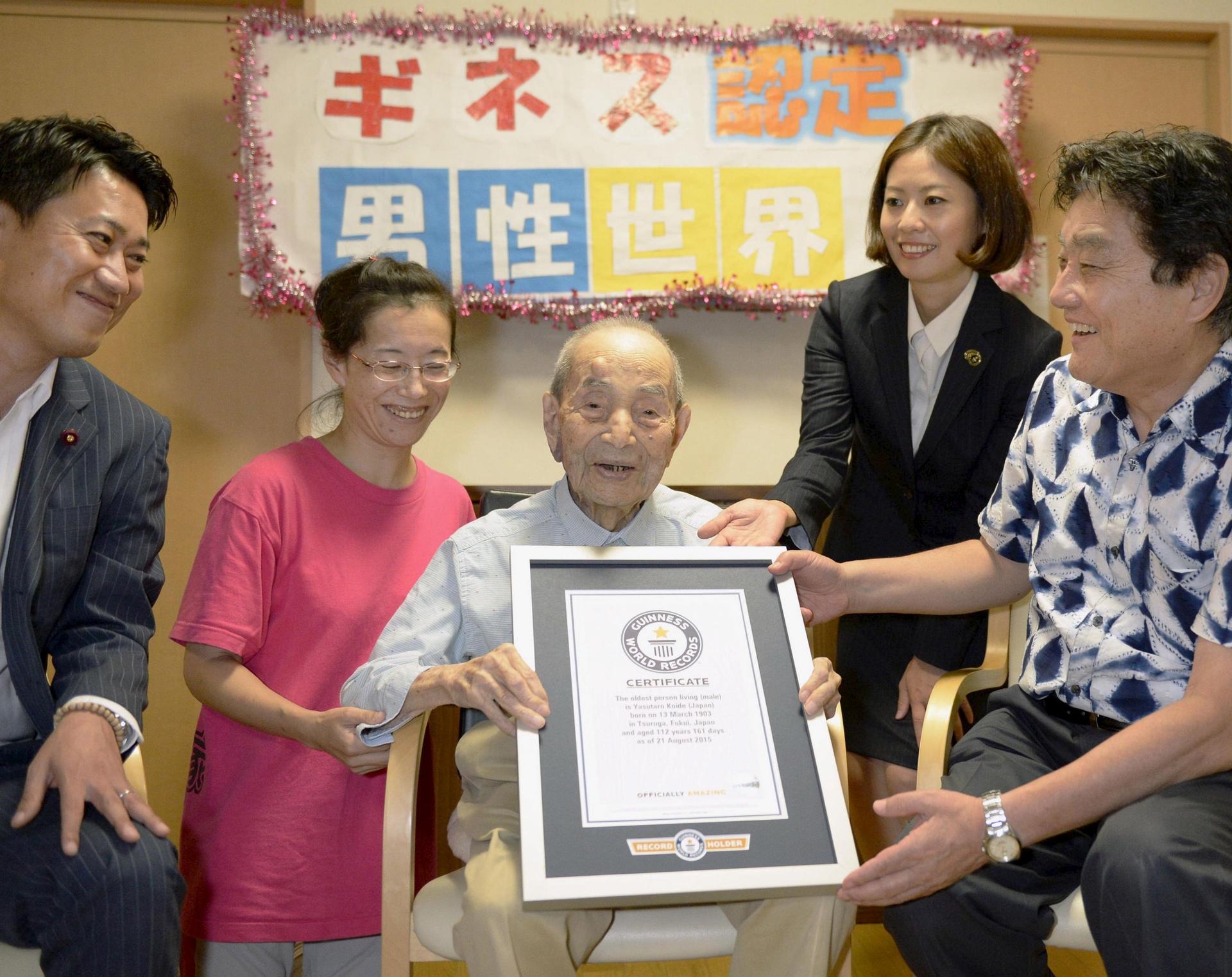Japanese Yasutaro Koide, 112, receives the Guinness World Records certificate as he is formally recognized as the world's oldest man. He lives in a nursing home in Nagoya, in central Japan.
The world’s oldest man lives in the country with the world’s oldest population. Yasutaro Koide is 112 years old and was just recognized by Guiness World Records as oldest man on Earth.
Japan’s remarkable longevity is cause for celebration. But it’s also creating challenges for a government dealing with a population that keeps getting older.
According to Naoko Muramatsu, a scientist who studies Japan’s aging population at the University of Illinois, Chicago, one-quarter of the country’s residents are already above 65.
There are many costs associated with an aging population, starting with the familiar challenges of social security and health care. But there’s also the cost of an odd Japanese tradition: giving a silver sake dish to centenarians, or people who reach 100 years of age.
Thanks to a new decision by the Japanese government, that practice — which is currently government-funded — may end soon. They say the total cost of the dishes, which are about $60 each, is simply too high. There are around 55,000 centenarians in Japan, according to 2013 statistics.
Muramatsu says there are several reasons that help explain the age of Japan’s population. “Life expectancy in Japan is the highest in the world,” she points out. “People try to eat well, try to do exercise well.”
Another reason is that ever since a brief postwar baby boom, Japan’s birth rate has remained extremely low. A aging baby from that baby boom will turn 65 soon, and many haven’t had very many children, or any at all — leaving more seniors living alone or in nursing homes.
Japan has started to respond to the challenge. In 2000, Japan started long-term care insurance. “You start paying into the system at the age of 40," says Muramatsu. "And at the age of 65, you’re entitled to receive long-term care, homecare or nursing home care.”
Muramatsu has a personal connection to the study of aging. She remembers that during her childhood, her mother looked after both the older and younger generations. But the tradition of caregiving has been transformed by Japan’s new demographics.
When Muramatsu’s father died a few years ago, she saw first-hand some of the challenges of growing old in Japan. “In Japan, cremation is the custom,” she explains. But cremation has become difficult in cities whose populations spiked in the postwar years. Many elderly people haven’t left urban areas, which means the death rate has risen. “I couldn’t reserve a cremation facility for my father, in the city that we live in.”
Those sorts of challenges may take decades to overcome. But with them come the fact that in Japan, women can expect to live almost 90 years. And Men live well past 80, on average.
And if they’re like Yasutaro Koide, they might even live to 112.
